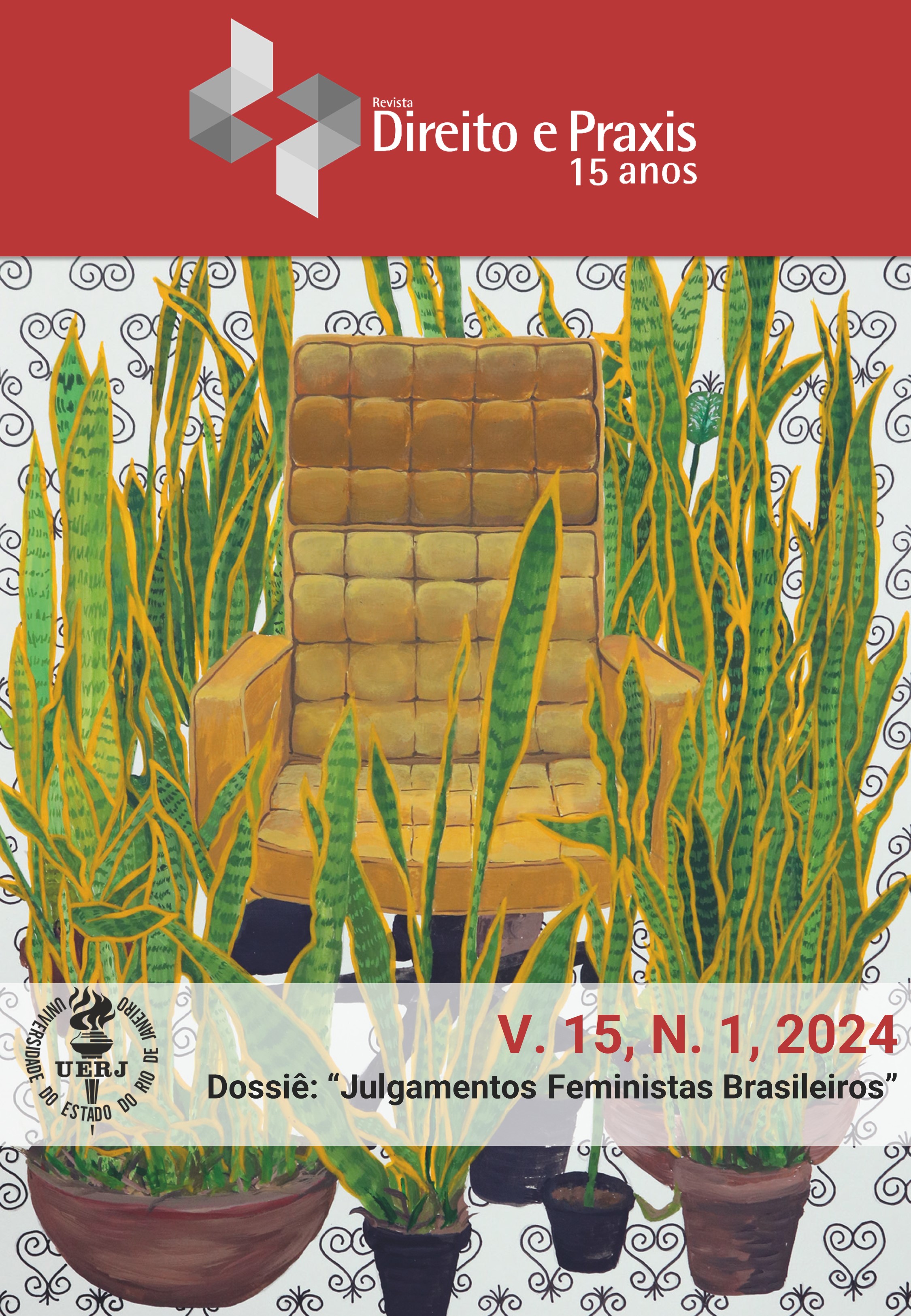As Leis de Anistia nos Órgãos Interamericanos de Direitos Humanos e a Justiça de Transição nos Estados Brasileiro e Argentino
Palavras-chave:
Direito comparado, Brasil, Argentina, Anistia política, Cortes Constitucionais, Sistema Interamericano de Direitos Humanos, Justiça de TransiçãoResumo
https://doi.org/10.1590/2179-8966/2022/66256
Durante o período da guerra fria, os Estados Latino-Americanos, diante da suposta ameaça comunista, viveram sob governos ditatoriais e violência estatal. O Brasil, em 1979, aprovou a Lei de Anistia Política, a qual concedeu anistia ampla tanto aos perpetradores de violência pelo Estado, quanto aos dissidentes do regime. Essa lei continua vigente, sem revisões, em razão do julgamento de uma Arguição de Preceito Fundamental pelo Supremo Tribunal Federal, apesar de posicionamentos contrários do Sistema Interamericano de Direitos Humanos. A Argentina, por sua vez, apesar de ter aprovado, em 1986, a denominada Lei de Ponto Final, que determinava a paralisação do trâmite de ações judiciais que buscavam a condenação dos perpetradores de violência estatal durante a ditadura, reviu o seu posicionamento por meio de um diálogo com a Comissão Internacional de Direitos Humanos. Com a utilização do método comparativo das condições históricas de aprovação e de conteúdo de forma geral, das leis de anistia brasileira e argentina, além da comparação das manifestações do Sistema Interamericano acerca dessas leis, o presente estudo busca mostrar as similaridades e discrepâncias na forma de tratamento interno pelas Cortes Constitucionais Argentina e Brasileira, das declarações do Sistema Interamericano sobre suas leis de anistia, além de avaliar o aspecto da condenação dos responsáveis pelas violências estatais nos dois países, parte indispensável de uma justiça de transição com o uso também do método hipotético-dedutivo e de pesquisa bibliográfica e documental. Por fim, a presente pesquisa explicita a falta de uma boa justiça de transição no Brasil, alicerçada na lei de anistia elaborada ainda durante a ditadura militar, nas condenações do Brasil perante a Corte Interamericana de Direitos Humanos e na confirmação da constitucionalidade da mencionada lei pela Corte Constitucional brasileira, de forma comparada com a forma que a Argentina conduziu a sua justiça de transição, com ruptura e penalização daqueles que perpetraram violências e violações de direitos humanos durante a ditadura, possibilitando a efetividade do direito à verdade e a possibilidade de construção da memória da população.
Palavras-chave: Direito comparado; Direito à memória; Direito à verdade; Anistia política; Cortes Constitucionais; Sistema Interamericano de Direitos Humanos; Justiça de Transição.
Abstract
During the Cold War, face the communist threat, Latin American countries lived under dictatorial governments and estate violence. In 1979, Brazil approved Political Amnesty Law that allowed large amnesty both perpetrators of state violence and regime dissidents. This law remains current, without revisions and alterations in reason of Allegation of Fundamental Precept judgment by Supreme Court, although manifestations against the Political Amnesty Law from Inter-American System of Human Rights. Argentina, on the other hand, despite having approved in 1986 the End Point Law that allowed impunity of the state violence perpetrators during dictatorship with the stoppage of ongoing lawsuits predicted, have reviewed your position through a dialogue with the International Commission of Human Rights. Across comparative method of historical conditions that bring to approval and the content in general of Brazilian and Argentine Political Amnesty Laws, also, of the Inter-American System manifestations about this laws, the present study pursuit present similarities and unconformities in treatments intern forms by Argentine and Brazilian Constitutional Courts after Inter-American System manifestations about their Amnesty Laws and understand the accountability of agents responsible for estate violence, indispensable in transitional justice also using the hypothetical-deductive method and bibliographic and documentary research. Lastly the present research makes explicit the lack of good transitional justice in Brazil, based on the amnesty law drafted during the military dictatorship, on Brazil’s convictions before Inter-American Court of Human Rights and on the confirmation of constitutionality of the mentioned law by the Brazilian Constitutional Court in a comparative method with the way Argentina has conducted its transitional justice, with rupture and penalization of those who perpetrated violence and human rights violations during the dictatorship, enabling the effectiveness of the right to the truth and the possibility of building the memory of the population.
Keywords: Comparative law; The right to memory; The right to truth. Political amnesty; Constitutional courts; Inter-American System of Human Rights; Transitional Justice.
Downloads
Downloads
Publicado
Como Citar
Edição
Seção
Licença
Copyright (c) 2022 Revista Direito e Práxis

Este trabalho está licenciado sob uma licença Creative Commons Attribution 4.0 International License.
Os textos são de exclusiva responsabilidade de seus autores.
É permitida a reprodução total ou parcial dos artigos da Revista Direito e Práxis, desde que citada a fonte.
Este trabalho está licenciado sob uma Licença Creative Commons 4.0, Atribuição-Sem Derivações.
Esta licença permite copiar e redistribuir o material em qualquer suporte ou format para qualquer fim, mesmo que comercial, desde de que citada a autoria original.
This work is licensed under a Creative Commons Attribution 4.0 International License.




